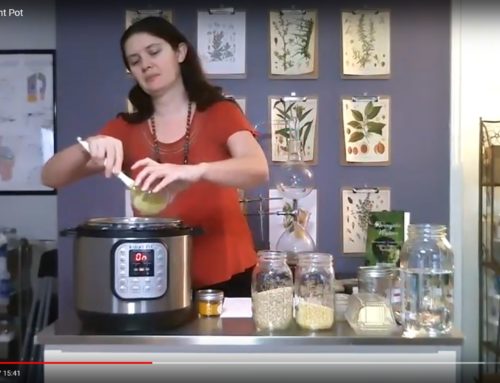Hippocrates used the theories of the Four Temperaments in his humorism medical model to better understand his patients. What if we used this model to better understand the specific needs of a child preparing for another year of school? Even better, what if this helped us better relate to the child’s needs when they are fundamentally different from our own?
Since many of us are still in summer brain mode I’ll keep this light, and brief with the disclaimer that Ancient Greek Medicine (AGM) is quite a bit more complex than this overview and you might enjoy grabbing a couple of books on the subject if I’ve piqued your interest. I’ll also mention that while I do not have children of my own I count experiences growing up as the second oldest of ten, a couple decades of babysitting and nannying, volunteering with the local Early Intervention program for special needs families, and twelve years working with pediatrics as a holistic practitioner. So, without further ado, let me talk a bit about the elements in our youngest populations…
The Sanguine Child
 Our Sanguine child is governed by the element of air and thus is born of movement. She’s a quick learner, very perceptive, and full of ideas. Frequently prone to daydreaming and if you catch her in a story telling mood she’ll spin you a tale drawing from her deep stores of imaginative play. Sanguine constitutions are made for movement, not lengthy times sitting in a classroom going over concepts she’s picked up in the first five minutes.
Our Sanguine child is governed by the element of air and thus is born of movement. She’s a quick learner, very perceptive, and full of ideas. Frequently prone to daydreaming and if you catch her in a story telling mood she’ll spin you a tale drawing from her deep stores of imaginative play. Sanguine constitutions are made for movement, not lengthy times sitting in a classroom going over concepts she’s picked up in the first five minutes.
To hold the Sanguine’s attention it is wise to introduce movement exercises to allow her body to do what she naturally does best: flit, bounce, skip, hop, run, and twirl. What happens when you try to contain air for a lengthy period? It grows stale, musty, and lacks movement. Our Sanguine child depends on movement at her very core. Challenge her with mental puzzles, let her flit down the hallways, give her time in nature to feel the movement around her before you attempt to capture her attention. Rinse and repeat. 🙂 It’s also helpful to recognize that, as her element moves her, Sanguine will explore a variety of hobbies and interests over the school year. Don’t be surprised that she’s changed her mind a dozen times before lunch, shows different sides of herself to each family member or friend, and consumes books with a voracious appetite.
The Sanguine child may be supported through aromatics that smooth the central nervous system, we call these nervines and relaxants, a good example would be Neroli. Avoid sedating aromatics until bedtime and then choose an aromatic that will draw her out of her thoughts and imagination and help her to rest peacefully through the night.
The Choleric Child
 Our Choleric child is governed by the element of fire. She is a motivated, self-starter, and usually has a strong tendency towards leadership. Her cheeks may be often flushed, and her coaches will admire her stamina in any sport she may take up. This is the child that announces at a young age her choice in profession and pursues that with a single-minded purpose. Her siblings and classmates will accuse of her being bossy but that’s just her inner fire coming out.
Our Choleric child is governed by the element of fire. She is a motivated, self-starter, and usually has a strong tendency towards leadership. Her cheeks may be often flushed, and her coaches will admire her stamina in any sport she may take up. This is the child that announces at a young age her choice in profession and pursues that with a single-minded purpose. Her siblings and classmates will accuse of her being bossy but that’s just her inner fire coming out.
Cholerics are prone to bouts of anger and frustration. One way to nurture and support this constitution is give her the space to blow off some steam. The more firey her personality the more she may need room to vent and a safe space to do so. Once her ire is up hold the space without fanning the flames and let her work her way through the frustration. Don’t be surprised when she’s still running on fuel and you’ve been ready for a nap for hours! 🙂
The Choleric child is best supported through aromatics that are cooling, and help circulate energy to avoid hot spots. Peter Holmes talks about green aromatics that provide this circulation of energy, a good example would be Petitgrain. It may be prudent to avoid warming, spicy aromatics, especially if our fire child is feeling an excess of this element.
The Phlegmatic Child
 Our Phlegmatic child is governed by the element of water, and like the Sanguine depends on movement in her daily routines. Water governs emotions and our Phlegmatic child relies on her feelings to navigate: does it feel right? How does she feel about it?
Our Phlegmatic child is governed by the element of water, and like the Sanguine depends on movement in her daily routines. Water governs emotions and our Phlegmatic child relies on her feelings to navigate: does it feel right? How does she feel about it?
Phlegmatics are keenly sensitive to the world around them, picking up on moods in the house and classroom, heightened awareness of sounds, smells, and sights. This can all be a bit overwhelming and the Phlegmatic needs some downtime to find her inner peace and turn down the volume on a very stimulating world. Like the Sanguine, time is perceived differently for the Phlegmatic so don’t be surprised when she takes longer to do an activity than a Choleric or Melancholic would. She’s working from a different internal clock than some of us are. 🙂
The Phlegmatic child is well supported through a nervine approach as well, Lemon Balm is a good example. Be sure to include her in the selection process of any aromatics so she can respond from an intuitive space to what she may need in the moment.
The Melancholic Child
 Our Melancholic child is governed by the element of earth, she’s grounded, structured, nurturing, and unmoving. We often attribute introversion with this constitution, which isn’t completely accurate, Melancholics are just not as vocal as some. They feel things deeply but often don’t need to share their experiences with others. A Melancholic excels instead in attentive listening, and are often sought out to keep confidences of friends and offer advice uncluttered with disingenuous praise.
Our Melancholic child is governed by the element of earth, she’s grounded, structured, nurturing, and unmoving. We often attribute introversion with this constitution, which isn’t completely accurate, Melancholics are just not as vocal as some. They feel things deeply but often don’t need to share their experiences with others. A Melancholic excels instead in attentive listening, and are often sought out to keep confidences of friends and offer advice uncluttered with disingenuous praise.
Melancholics are the thinkers of the world. Quiet, contemplative, and very thorough, they look at the structure of ideas and theories and quickly identify weaknesses. They’ll spot factual errors in textbooks, and be troubled by opinion prioritized over facts. Want to know if you’ve got a Melancholic in the room? Try playing a board game and see who wants to go into the long hours of the night strategizing. 🙂
The Melancholic child is well supported through aromatics that energize or stimulate the constitution, a good example would be Grapefruit. Sinking, grounding aromatics from plant parts that grow below ground may increase the earth element in this child and should be used sparingly, with an attention to wellness goals when appropriate.
Routine, Structure, and Free Time
Every child needs space to stretch their limbs and have quality fun and play time. You may find yourself nudging the Melancholic and Phlegmatic children out the door more than high energy Choleric and Sanguine. You may feel like you need to sit on the Phlegmatic and Sanguine children to get them to eat breakfast and complete tasks assigned to them for the day, remember that these two have very different perceptions of time and need a bit more structure than the other two types.
Each of us draws from more than one element, we’re never 100% one temperament but a combination of two or more. Holistic aromatherapy seeks to support the natural direction of a person, child or adult, based on who they are at their core. As you can imagine there’s no one remedy that can address each of these constitutions. Even acute wellness support looks different depending on the unique nature of the individual.
If you’d like to discuss your child’s constitution and ways to best support them going into another school season I’d be happy to speak with you. I find it most helpful when I am supporting a family to have a health history for each member of the household so we can navigate ways to support each individual. I offer consultations here in my Northwest Austin studio as well as phone consultations for those living outside of the area. Let me know how I can be of help! Happy wishes to you and your littles as we move into another school year!
*Image of The Four Temperaments by Charles le Brun, 1674.







Leave a Reply